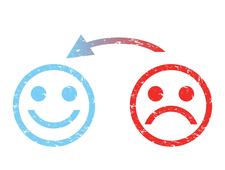Dgit brings Git to the Debian archive
Git Happy

© Lead Image © james weston, 123RF.com
Dgit combines the Debian archive with a Git repository, giving package maintainers some totally new options for managing Debian source packages.
Version management systems are a fundamental building block of professional software development. Many projects use Git [1], a version control tool created by Linux founder Linus Torvalds for the Linux kernel developer community. Git offers a distributed development environment with many benefits, such as revision management and flexibility with exchanging code, but it is difficult for a development project with large, legacy archives to interface with the Git environment. A helpful tool known as dgit brings the power of Git to the entire Debian archive. See Table 1.
Dgit which was created by Ian Jackson, treats the whole Debian archive as a version control system and serves as a "bidirectional gateway between the archive and Git." Dgit [2] lets users load arbitrary source packages from the archive into a local Git repository, then work on them with Git techniques, and finally build the binaries (Figure 1). Package maintainers can use dgit to feed their changes back into the Debian archive.
[...]
Buy this article as PDF
(incl. VAT)
Buy Linux Magazine
Subscribe to our Linux Newsletters
Find Linux and Open Source Jobs
Subscribe to our ADMIN Newsletters
Support Our Work
Linux Magazine content is made possible with support from readers like you. Please consider contributing when you’ve found an article to be beneficial.

News
-
The Next Linux Kernel Turns 7.0
Linus Torvalds has announced that after Linux kernel 6.19, we'll finally reach the 7.0 iteration stage.
-
Linux From Scratch Drops SysVinit Support
LFS will no longer support SysVinit.
-
LibreOffice 26.2 Now Available
With new features, improvements, and bug fixes, LibreOffice 26.2 delivers a modern, polished office suite without compromise.
-
Linux Kernel Project Releases Project Continuity Document
What happens to Linux when there's no Linus? It's a question many of us have asked over the years, and it seems it's also on the minds of the Linux kernel project.
-
Mecha Systems Introduces Linux Handheld
Mecha Systems has revealed its Mecha Comet, a new handheld computer powered by – you guessed it – Linux.
-
MX Linux 25.1 Features Dual Init System ISO
The latest release of MX Linux caters to lovers of two different init systems and even offers instructions on how to transition.
-
Photoshop on Linux?
A developer has patched Wine so that it'll run specific versions of Photoshop that depend on Adobe Creative Cloud.
-
Linux Mint 22.3 Now Available with New Tools
Linux Mint 22.3 has been released with a pair of new tools for system admins and some pretty cool new features.
-
New Linux Malware Targets Cloud-Based Linux Installations
VoidLink, a new Linux malware, should be of real concern because of its stealth and customization.
-
Say Goodbye to Middle-Mouse Paste
Both Gnome and Firefox have proposed getting rid of a long-time favorite Linux feature.

